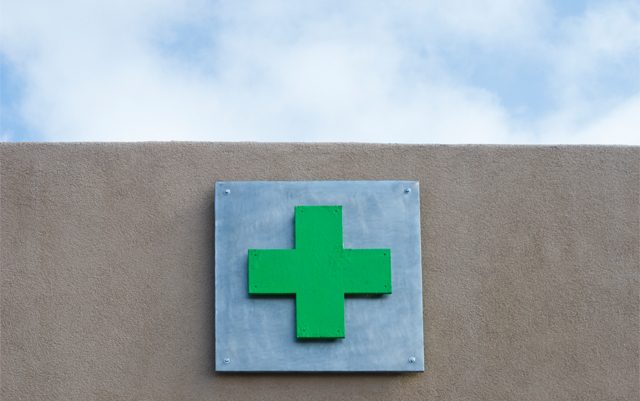Under a new medical marijuana ordinance that took effect a little over a year ago, the vast majority of medical marijuana dispensaries operating in the city of Detroit have been deemed illegal by authorities. In that time some 167 dispensaries have been forced to close their doors, their patients forced to look elsewhere for their medicine.
In total, 283 dispensaries have been told to cease operations since they were not legally licensed under city rules. “None of them were operating lawfully,” Detroit corporation counsel Melvin Butch Hollowell said. “At the time I sent a letter to each one of them indicating that unless you have a fully licensed facility, you are operating at your own risk.”
The coming weeks will see another 51 closures; as of right now, only 5 are legally licensed to operate. Five dispensaries in a city with over 4 million people in its metro area, in a state with almost 250,000 registered patients.
“The voters of the state made medical marijuana legal so we have to manage that in a way that is consistent with keeping our neighborhoods respected and at the same time, allowing for those dispensaries to operate in their specific areas that we’ve identified as being lawful,” Hollowell said. “There was very significant public input in this process.”
While local control and input is a good thing, there is also the suffering of thousands of medical marijuana patients in Detroit, one of the poorest and most crime-ridden cities in the nation, to consider.
For example, under the new rules, dispensaries are barred from operating within a 1,000-foot radius of a church, school, park, liquor store, another dispensary, library or child care center. Can’t that list be pared-down? Why 1,000 feet from a liquor store or another dispensary? What danger exists at 900 feet that doesn’t exist at 1,100 feet in that situation? And this at a time when the Michigan Liquor Control Commission recently lifted a regulation that state liquor stores have to be at least a half-mile from each other.
One can see why a neighborhood would want sensible requirements for any business that operates near their location. But why is medical cannabis singled out for harsher treatment than other industries, like the alcohol sales industry? Where are the people who depend on those closed dispensaries supposed to go?
Some, to be sure, will go to the handful of legal dispensaries left in the city. But most will end up buying from the black market or even worse, going without their medicine completely. Some of those people will migrate back to addictive and deadly prescription drugs.
But I guess as long as Johnny’s Liquor Store isn’t 700 feet from Bob’s Medical Marijuana Dispensary then all is right with the world.






